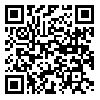Volume 5, Issue 7 (2020)
JCSFA 2020, 5(7): 39-58 |
Back to browse issues page
Download citation:
BibTeX | RIS | EndNote | Medlars | ProCite | Reference Manager | RefWorks
Send citation to:



BibTeX | RIS | EndNote | Medlars | ProCite | Reference Manager | RefWorks
Send citation to:
Afzali A, Madani A. Applying Gideon Thouri Norms Theory to Qualitative Evaluation of Translation of Persian Poems into Arabic (Case Study: Poetry of Ferydoun Moshiri). JCSFA 2020; 5 (7) :39-58
URL: http://jcsfa.modares.ac.ir/article-39-58189-en.html
URL: http://jcsfa.modares.ac.ir/article-39-58189-en.html
1- , ali.afzali@ut.ac.ir
Abstract: (1960 Views)
Applying Gideon's Theory of Norms in Qualitative Assessment of Translation of Feridoun Moshiri’s Poems in Arabic. Translation acts as one of the agents of thought change as a bridge for the transmission of thoughts from different languages to one another. Translation has long attracted the attention of translators, and its translation or non-translation has always been the subject of controversy among translation theorists. Poetry is in its most succinct form a language whose language is often not explicit but implicit and moving all of its semantic layers to the target language is very difficult. In translating poetry into Arabic, Iranian poets have moved on to other literary works. In this era, we are seeing more translators trying to translate contemporary Persian poetry. Many of these poems have been translated into Arabic by translators. This method deals with the translation process or the act of translation itself. His theory points to the literary formats that exist in any particular culture and one of its main achievements was that Attention to the relationship between the individual texts of origin and the destination focused on the relationships that exist between the destination texts themselves. the main result of the qualitative evaluation of Abdul Moneim's translation to Arabic Indicates that his work It has an acceptance in the destination culture but it is far from sufficient in the Farsi.
Keywords: Contemporary Persian Poetry, Evaluating Arabic Translation, Mohammad Noureddin Abdul Moneim, Gideon Touri, Ferydoun Moshiri
Article Type: Original Research |
Received: 2020/04/25 | Accepted: 2021/04/30 | Published: 2021/05/21
Received: 2020/04/25 | Accepted: 2021/04/30 | Published: 2021/05/21
Send email to the article author
| Rights and permissions | |
 |
This work is licensed under a Creative Commons Attribution-NonCommercial 4.0 International License. |







